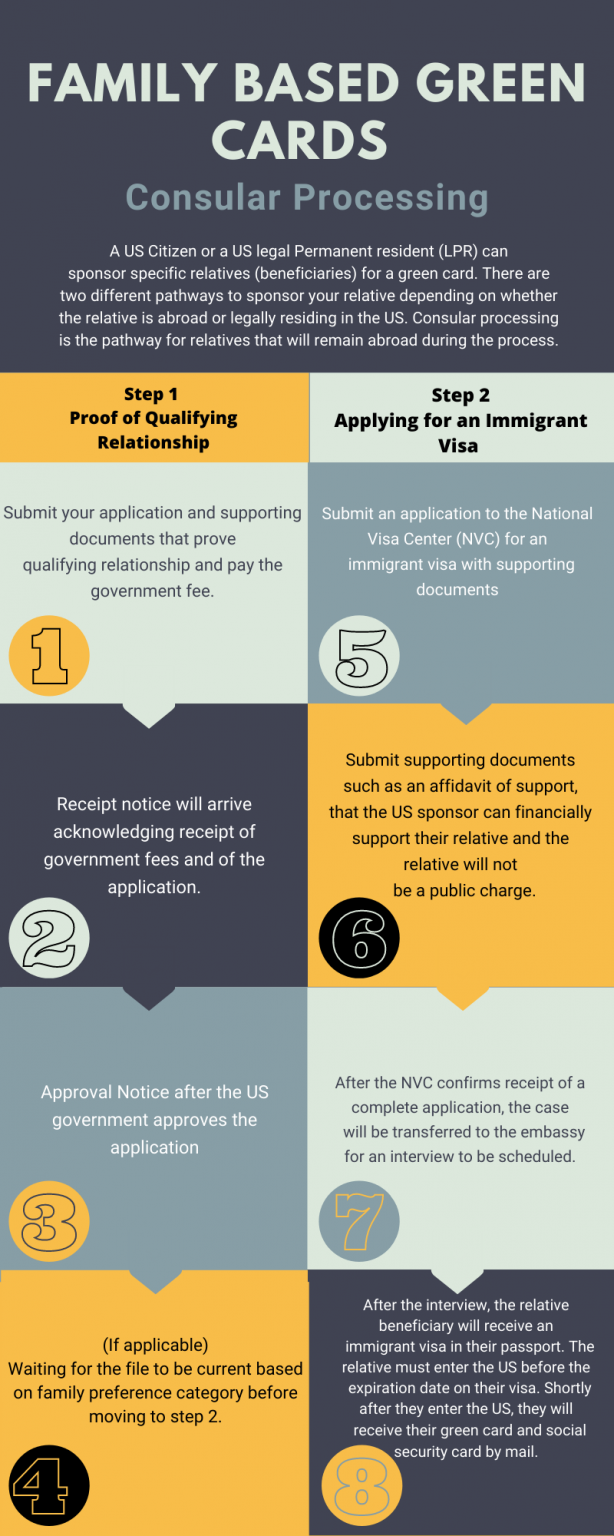
A US Citizen or a US legal Permanent resident (LPR) can sponsor specific relatives (beneficiaries) for a green card. There are two different pathways to sponsor your relative depending on whether the relative is abroad or legally residing in the US. Consular processing is the pathway for relatives that will remain abroad during the process.
Step 1 – Proving the relationship
1. Submitting an application and paying a government fee to the USCIS with supporting documents that show the qualifying relationship between the sponsor (US citizen/LPR) and the beneficiary (relative being sponsored).
2. Receipt notice – after the application is submitted, the first thing we receive from the USCIS is a receipt notice that acknowledges the government fee was paid and the application received.
3. Approval Notice – The application needs to be processed by the USCIS, after the application is processed, we receive an approval notice. This finishes step 1 and allows us to apply for an immigrant visa.
4. Waiting for the file to be current – With family-based petitions, the US prioritizes different types of family relationships, and the preference classification will determine how long the beneficiary will need to wait for there to be a visa available for them. In some cases, it can take years until there is a visa available and we are able to apply for an immigrant visa
Step 2 – Applying for an immigrant visa
1. Submitting an application to the National Visa Center (NVC), this will include personal details, a detailed history of the applicant’s employment and address history as well as many other questions.
2. Affidavit of Support application – This affidavit will need to be signed by the sponsor (US citizen/LPR) that they can financially support their relative and that their relative will not become a public charge.
3. Confirmation from NVC – After the NVC confirms receipt of a complete application, the case will be transferred to the embassy for an interview to be scheduled.
4. Interview in Embassy – After the interview, the relative )beneficiary( will receive an immigrant visa in their passport. The relative must enter the US before the expiration date on their visa. Shortly after they enter the US, they will receive their green card and social security card by mail.
All said and explained
in this article does not constitute a legal opinion and does not replace legal
advice. Responsibility for using the wordings and opinions conveyed in this
article relies solely and entirely on the reader.
This article was written by Dotan Cohen Law Offices, working in the field of immigration law in Israel, the United States and Canada.




